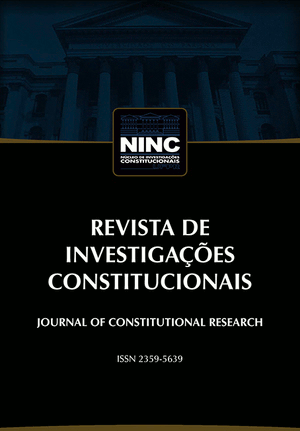Abstract
With the emergence of transformative Latin American constitutionalism, it is necessary to review the metaphors that serve as its foundation and that prescribe its proper functioning. To do this, it is proposed to assimilate these constitutions to a master plan aimed at social change. This analogy has important implications from recent developments in ontology and social philosophy. For the branches of the State as agents linked to the development of the constitutional project, this implies the maxims of mutual responsiveness, commitment to the joint activity and commitment to mutual support. The latter is where the analytical foundation of the duty of collaboration between the public powers to comply with the constitutional plan lies. In addition to this, a significant number of Latin American constitutions expressly provide that mandate, together with devices that develop it and practices such as structural sentences that use it as a foundation. Therefore, addressing the meaning and scope of the principle of harmonious collaboration between powers is not only novel, but also promising in order to improve the effectiveness and compliance of constitutional texts with a transformative vocation.
Keywords:
constitution; transformative constitutionalism; plan; social ontology; harmonious collaboration
